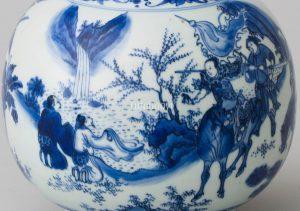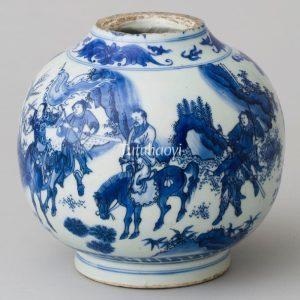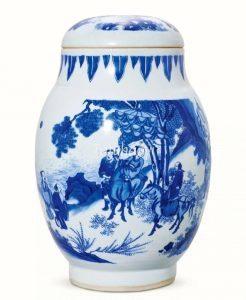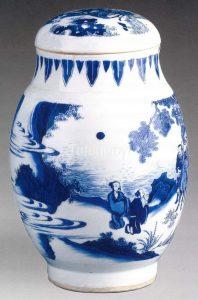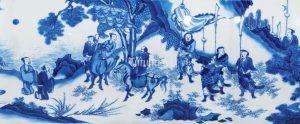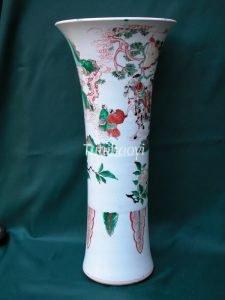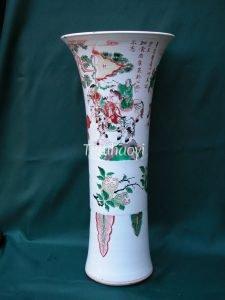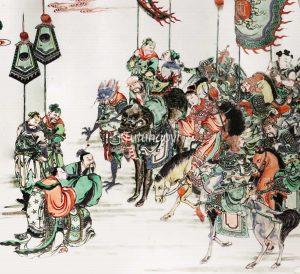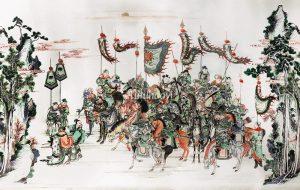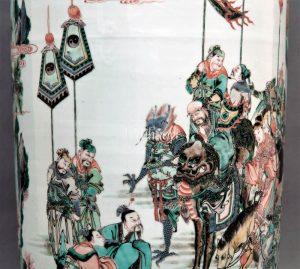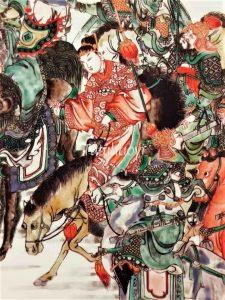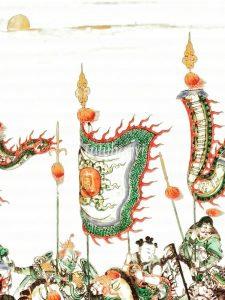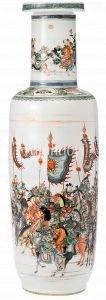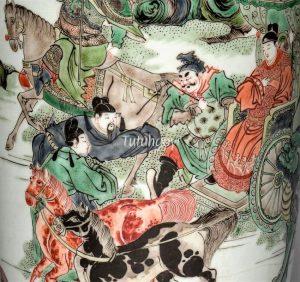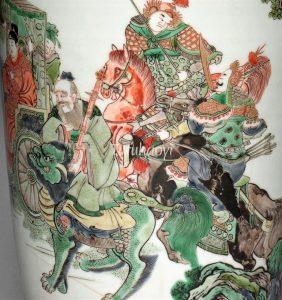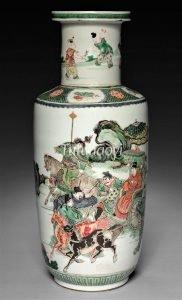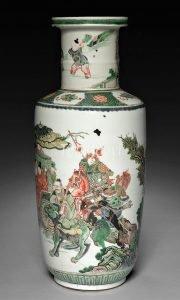Bo Yi and Shu Qi Trying to Stop the Mighty Zhou Army
伯夷叔齐叩马谏周王
© Tutuhaoyi.com owns the copyright of the description content for the images attached. Quoting all or part of the description content on this page is permitted ONLY IF ‘Tutuhaoyi.com’ is clearly acknowledged anywhere your quote is produced unless stated otherwise. (本页描述内容版权归Tutuhaoyi.com所有,转发或引用需注明 “Tutuhaoyi.com”, 侵权必究, 已注开源信息的条目除外。)
Bo Yi (or Boyi, 伯夷) and Shu Qi (or Shuqi, 叔齐) were sons of the ruler of Guzhu (孤竹), a vassal state of the Shang dynasty (商朝, 16th-11th cent. BCE). As the king was getting old, he wanted Shu Qi, his youngest son, to inherit his throne. However, when the father died, Shu Qi asked Bo Yi to take over the throne because he thought Bo Yi was the eldest brother and rightly deserved the position. Bo Yi declined the offer, saying that their father’s wishes should not be altered and then he left the country. Shu Qi followed and left the country, too. With their absence, another brother of theirs was enthroned.
While wandering along the coast of the North Sea, the two brothers heard that another vassal of Shang, the Zhou state, was an ideal place for a peaceful and quiet retired life and they set off to go there. When they arrived, the old ruler, Count of the Zhou had just passed away and his son enthroned himself as King Wu (武王) and posthumously gave his father the title of King Wen (文王). King Wu believed that he was the next person to have the mandate from Heaven to rule the Shang territories, instead of just being the Count of Zhou under the Shang.
With the veteran strategist the Grand Duke Jiang Ziya (姜子牙, or Jiang Taigong 姜太公), King Wu was launching a military campaign to overthrow the Shang house, when the two brothers appeared in the middle of the road. They tried to stop King Wu’s army and admonished him, ‘Can it be called observing filial piety when one launches a military campaign before one has properly buried one’s diseased father? Can it be called a gentleman’s proper behaviour when a subject is to assassinate his lord?’ King Wu’s entourage then tried to kill the two but Grand Duke Jiang stopped them, saying, ‘They are righteous people.’ Then Mr Jiang helped the two move out of the way and the army marched on.
The story scene depicted on the famille verte Kangxi vase in the previous Jie Rui Tang Collection was first unveiled by Dr Yibin Ni. He has since published two more articles discussing the figural composition in such theme and Jiang Ziya’s riding painted on the antique porcelain vases.
References:
- 倪亦斌:《武王子牙举旗伐商 伯夷叔齐叩马阻兵》,《读者欣赏》,兰州:读者出版传媒股份有限公司,2016-07,60–65 页
- Jeffrey P. Stamen and Cynthia Volk with Yibin Ni (2017), A Culture Revealed: Kangxi-Era Chinese Porcelain from the Jie Rui Tang Collection 文采卓然:潔蕊堂藏康熙盛世瓷, Jieruitang Publishing, Bruges, pp. 22–25.
Fig 1-2: porcelain vase (top missing) with underglaze blue decoration, Chongzhen period (1628–44), Ming dynasty, courtesy of The Royal Dresden Porcelain Collection, Dresden State Art Collections, Germany, Inv. no. PO 240
Fig 3-5: porcelain jar with underglaze blue decoration, Chongzhen period (1628–44), Ming dynasty, anonymous private collection
Fig 6-7: porcelain vase with overglaze enamelled decoration, Shunzhi period (1644–61), Qing dynasty, courtesy of the Sir Michael Butler Collection
Fig 8-14: famille verte rouleau vase, Kangxi period (1662–1722), Qing dynasty, courtesy of the previous Jie Rui Tang Collection
Fig 15-18: porcelain vase with famille verte overglaze enamel decoration, Qing dynasty (1644–1911), courtesy of the Cleveland Museum of Art
